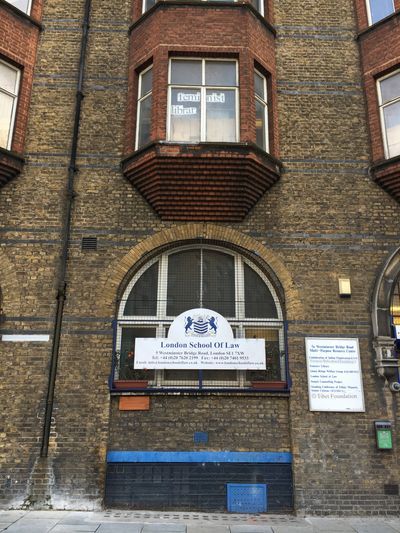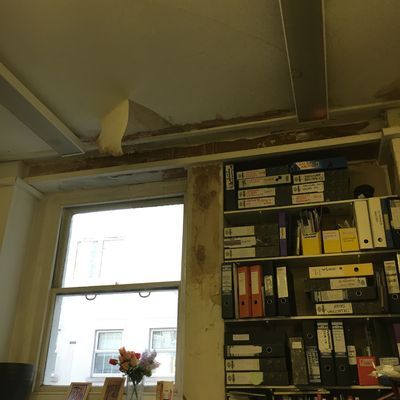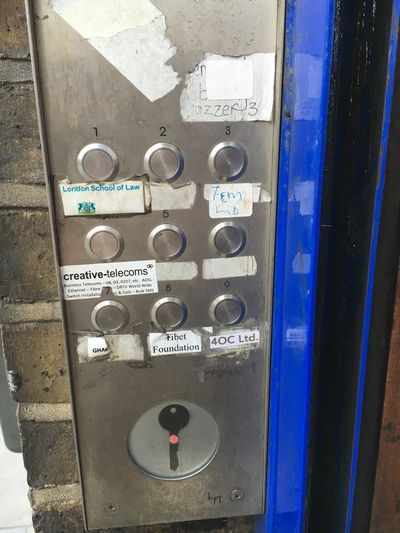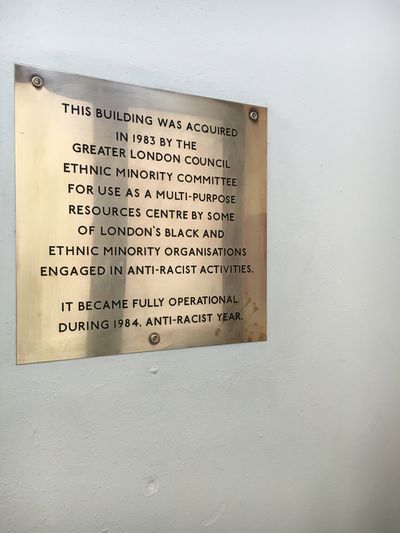A night with Gloria Steinem and why the Feminist Library deserves better

The Feminist Library (upstairs window)
By ROZALIND DINEEN
On a recent cold evening, Gloria Steinem was gently escorted on to the stage at the Emmanuel Centre, a listed building tucked around the corner from Westminster Abbey, the Houses of Parliament and various other institutions of hierarchy and power in central London.
Steinem draws a crowd. At eighty-one, with decades of feminist activism behind her, she has witnessed a great deal of societal change: distortions and corrections and new frustrations. The seats were sold out ��� all 1,000 of them, at ��25 a pop. And the auditorium (���completely circular and supported by 24 pairs of marble columns, with natural light flooding that [sic] through a huge glass dome and arched windows, finished off with original polished English oak panels along the walls���) was full, mostly of women ��� well-heeled women at that, with great hair and great coats.
Steinem was followed on to the stage by her interviewer Emma Watson, she of Harry Potter and also the UN ���HeForShe��� speech (���If men don���t have to be aggressive in order to be accepted, women won���t feel compelled to be submissive. If men don���t have to control, women won���t have to be controlled��� etc), who is now the face of a Feminist book club.
Here was youth beside experience: fashionable feminism beside that which has endured. Steinem was lively, bright and kind, not hardened. Yet when Watson read out a statistic from the book Sex and World Peace that she found astonishing ��� ������more lives are lost through violence against women from . . .
. . . sex-selective abortion, female infanticide, suicide, egregious maternal mortality, and other sex-linked causes than were lost during all the wars and civil strife of the twentieth century������ Steinem was calmly unsurprised. ���It has taken us thirty years to get it conceptually to most folks that rape is violence���, she pointed out. ���Men have to prove their superiority to women and other men���, but, if we release the pressure on men to be performatively ���masculine���, their life expectancy rises by five years. ���The source of all change is small groups of people supporting each other.���
Steinem also noted that just down the road from this grand auditorium, on the other side of the river, was the Feminist Library, and at that very moment a protest was taking place to save it from eviction. That protest was in fact taking place a little further downstream, outside a budget meeting at the head quarters of Southwark Council on Tooley Street.
The Feminist Library is a glorious thing. It is free, intergenerational, welcoming, housed in a few rooms, and it has been run by dedicated, professional, volunteers for forty years. Researchers and writers travel to it from around the world, but it is fruitful for the general browser too. Here you will find shelves of books grouped together on the subject of women and work, midwifery, miscarriage, violence, girls, Judaism and the female experience, lesbians, lovers, the connection between malnourishment and writing. Here is Ruth Hall���s biography of Marie Stopes; there Hannah Gavron is shelved next to Women's Work, Class and the Urban Household: A Study of Shimla, North India. And then the fiction (the famous, the forgotten) and the poetry.
In the periodicals room Shifra is beside Shrew is beside Sibyl. There's the Persian Feminist Quarterly, the Endometriosis Society Newsletter, the Pink Paper and Off Our Backs. On a recent visit I pulled out the issue of Spare Rib that came out on the day I was born, the special Black Women���s Issue.
This is a treasure trove of female concern. And the experience of being surrounded by only works of female writers, after a life of the opposite, is moving. These writers are here, you feel, in spite of the odds, and there is something comforting about standing between these shelves, as well as provoking.
But the Feminist Library is not well-heeled.
At the top of this post there's a photograph of the outside of the library, with its home-made sign in the window. Here's the entrance bell (top-right buzzer):
Once you gain entry, there's a plaque in the hallway:
It explains that this building on Westminster Bridge Road was originally acquired by the GLC for use by organizations engaged in anti-racist activity. Now Southwark Council, under huge budgetary pressures, we assume, have decided to re-purpose the valuable space. This is an example of that familiar London sleight of hand in which a social asset is converted into a financial one. Without fanfare the council seem to be re-purposing not just the building, but this plaque, rendering it a historical object only.
Until now the library have been charged ��12,000 a year in service charges. At the beginning of the year, Southwark Council proposed to add a rent of ��18,000 to this ��12,000. In February the Council demanded full payment or else eviction on March 1. (It would appear that the GHARWEG ��� a free training and careers centre especially for people of African origin ��� were locked out of their part of the building on February 9). Over 15,000 signatures have been added to a petition to save the library, and as a ���goodwill gesture��� the council extended the eviction deadline to April 30.
Councillor Michael Situ has been reported as saying, ���We have also given the library the time to find alternative premises, and will continue to help them find an alternative location if we can, but we are unable to subsidise their rent���.
Surely what the Councillor meant to say was that they are unable to provide many of the resources throughout the borough that they have in the past. "We are unable to subsidise their rent" makes the librarians sound like scroungers.
The Feminist Library, whether by private or public means, deserves better than this. Twenty-four pairs of marble columns, flooding natural light and polished English oak panels would be fine. But a simpler, secure future will do just as well. In 2016, feminism is hip and cool and celebrity-endorsed and yet, just across the river from those buildings of hierarchy and power, the Feminist Library makes do with a few damp rooms. On International Woman���s Day you could do worse than visit the library, sign the petition, or donate to the emergency fund and preserve this valuable resource for another forty years and more. ���The source of all change is small groups of people supporting each other.���

The office at the Feminist Library
Peter Stothard's Blog
- Peter Stothard's profile
- 30 followers





